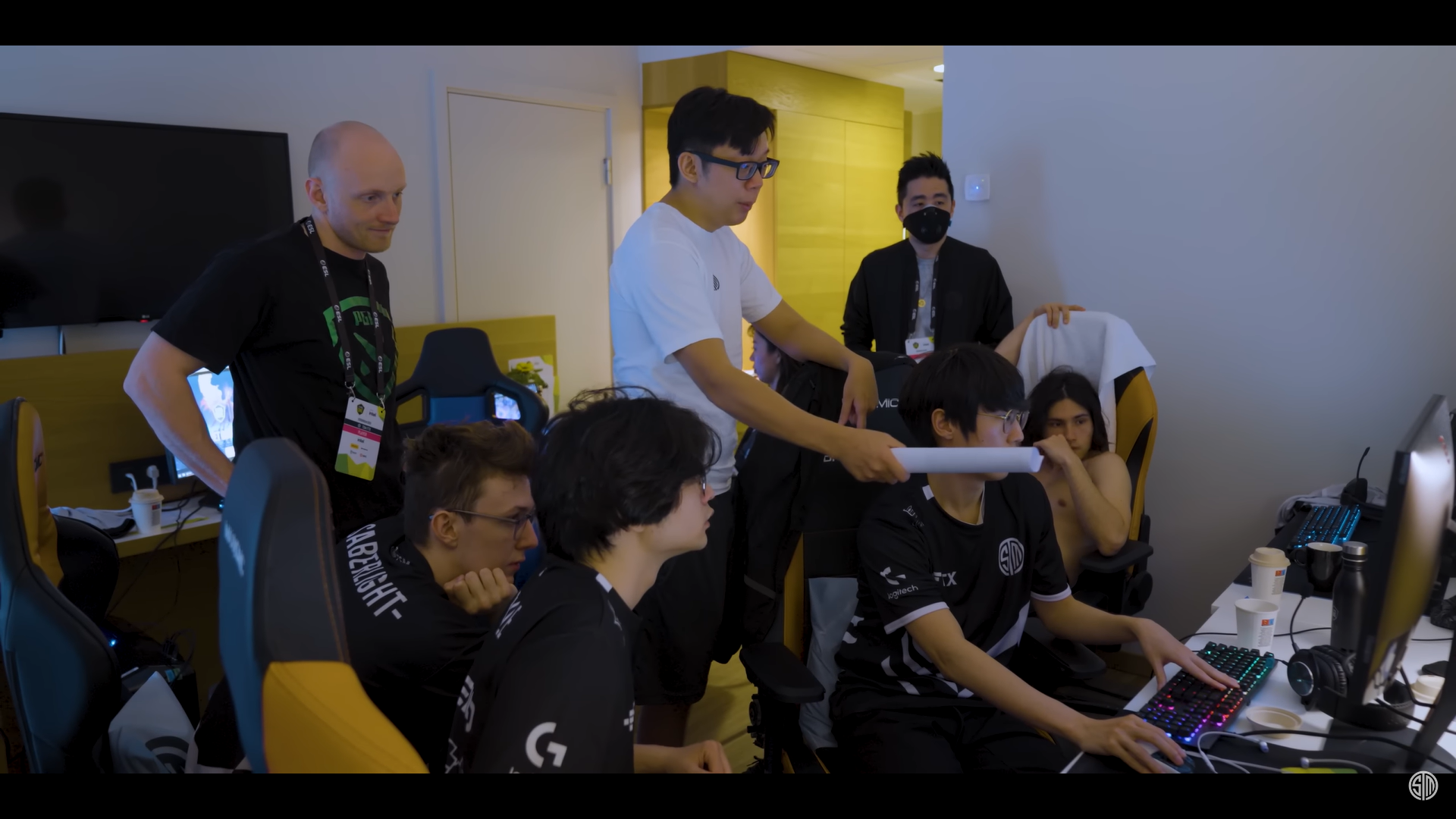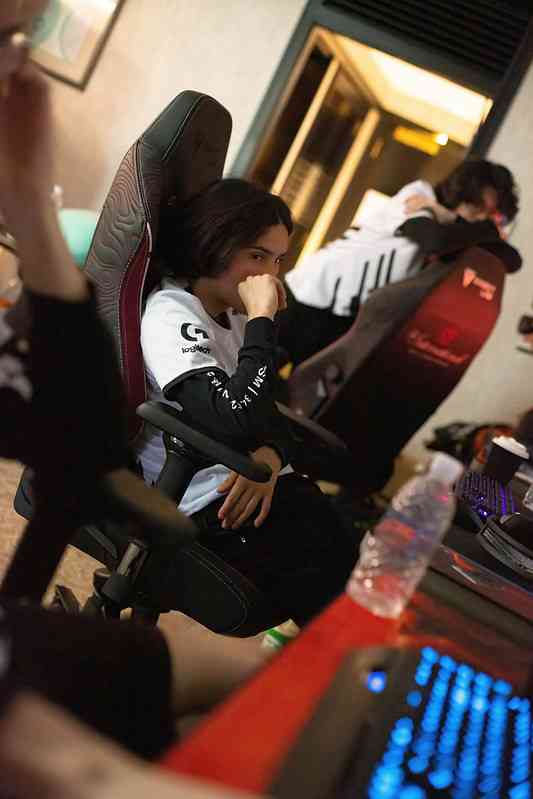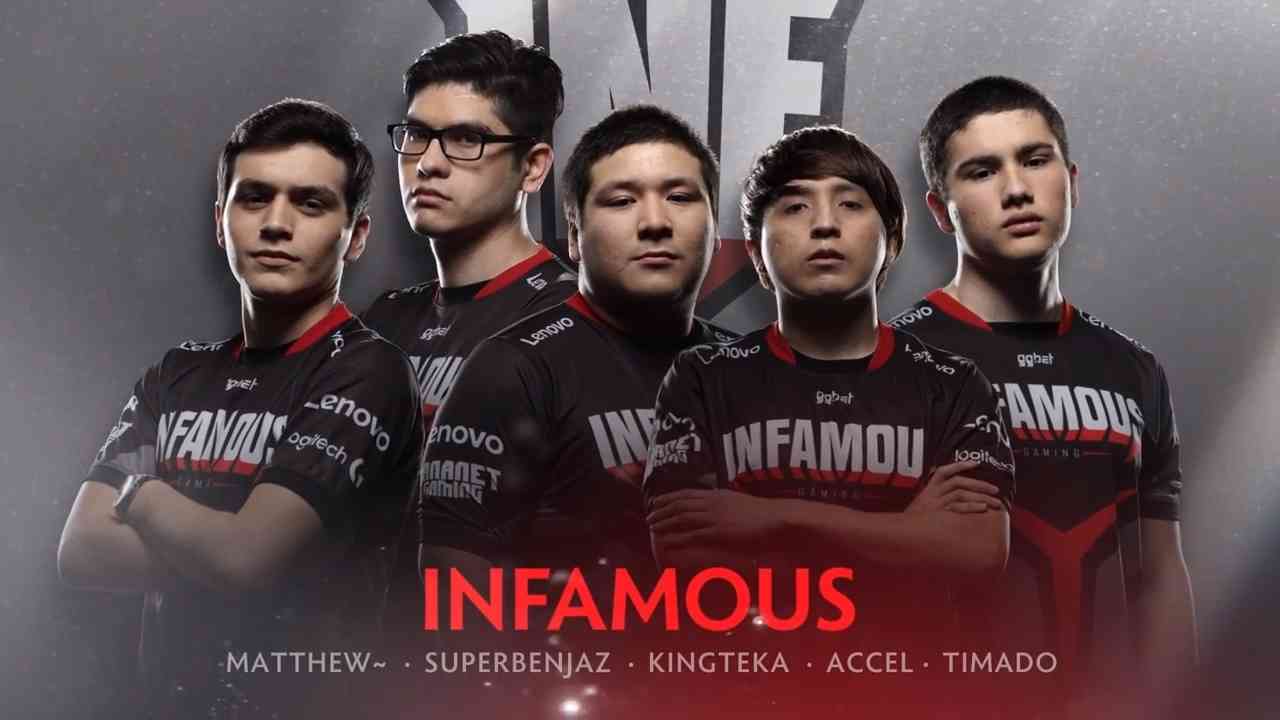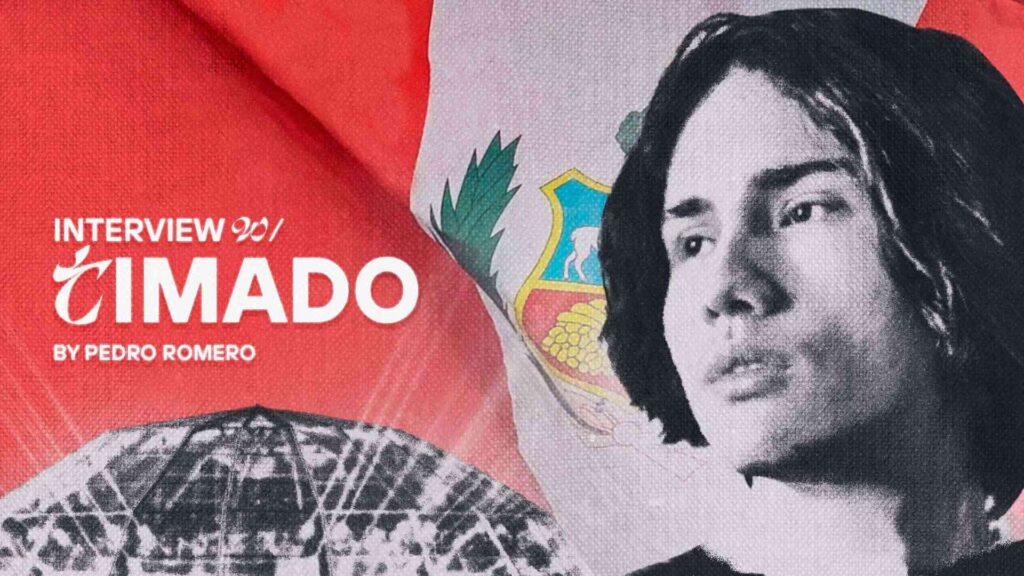More than half a decade since South America was recognized as an official region by Valve for the competitive Dota 2 scene, it will serve as host for the Lima Major, set in the capital of Peru. Barring any outside circumstance, this event will mark the first time SA hosts an international DPC event in the game’s competitive history.
South America hosting the Lima Major is a celebration of numerous kinds for its people, who have been waiting for this moment in particular ever since the game set foot there. For the players specifically, competing in this Major means they will get the chance to experience what life is like in the continent and truly understand why there has been incalculable excitement for this event.
But among those making the trip to Peru for the Major, save for the two SA teams that will represent the region as the hometown teams, only one individual will view this event as a type of homecoming. Enzo “Timado” Gianoli is the lone Peruvian-born player who will compete in the Major as a member of a team from outside of the region. It is a return more than two years in the making for one of SA’s greatest players, for after becoming a part of the first SA TI representative at 16 years old, he became the first Peruvian to play in a Major grand final while in North America for Team SoloMid.
As soon as Timado secured his ticket to play in the Major, a wave of anticipation from his home country flooded the web about its fans welcoming one of their prodigal sons back home amidst the dawn of a new era in their history.
Unlike before where teams and players had to scrounge for cents and crumbs to continue their careers, SA now has a vast list of prominent orgs competing in the regional DPC league including Evil Geniuses, who departed from North America after being based there for 11 years, and Alliance, who opened its LATAM branch by signing the Hokori lineup shortly following TI11.
This only makes the return of Timado all the more delightful. A new look SA hosting one of its best players in the first Major that will take place in home soil is the stuff one dreams about. Fortunately, it is a particular experience only Timado will get to go through once he returns home to Peru.
In the first part of an interview BLIX.GG had with Timado, he covers how his term performed in the Winter Tour, the difference between the current version of TSM and the one that competed in TI11, what it’s like for him to play back home for the Major, and the progression of the SA scene in competitive Dota.
Reviewing the 2023 Winter Tour
Pedro Romero, BLIX.GG: Your team TSM qualified for the Lima Major undefeated, so I’d like to start by asking for your thoughts on finishing this Winter Tour.
Enzo “Timado” Gianoli: I’m very happy with our progress. This team is very hungry. I like my teammates a lot. I respect their drive. Now that I’m one of the oldest in the team, I enjoy this role more in taking things more seriously and being a little less clowny than the others.
But it’s been nice getting to know them. It’s been nice beating Shopify. It’s been nice testing out how Moonmeander’s (David Tan Boon Yang) coaching is going. I think it’s going great so far. He’s done an amazing job so we’re really ending on a high note so far and I’m very excited to play at a Major.
BLIX: Alongside Bryle (Jonathan De Guia) and Moon, you are one of the oldest members in the team. Did you feel you had to take a major step towards being a leader for this DPC compared to past seasons?
Timado: Before, I was trying to be a rock for the team. I just wanted to be the most consistent because I felt my team was a little inconsistent. I’m talking about the first iteration of TSM. I tried to always be practicing and push myself the hardest. That way, if there was someone who was slacking a little bit, I can make up for them.
As for this team, I’m just doing my part, it just happens that I know more than the others because I’ve been playing for longer competitive Dota. I’ve been playing with Moon longer than some of them and instead of trying having to put an extra effort in being solid and the rock for the team, I just do my own game and I can naturally achieve that by having clean communication.
These are small things that the longer you play Dota, the better you get out of it because you just have more time practicing. It kind of felt more natural and I still feel like I’m doing a similar role that I was before.
BLIX: How have you helped the rest of your teammates match the same mindset you have in preparation for the season and how has that then translated into TSM’s subsequent performance?
Timado: I think that’s the nicest part of this game, which is why maybe I feel less responsibility, which might seem contradicting as opposed to being older and taking more of a lead in the game. Especially this year when we played against Shopify, I was trying to lead the game throughout a lot of the stages and Whitemon (Matthew Filemon) does as well. Whitemon does it more consistently, but for me, happens when things matter the most.
I don’t know how to put it. These guys are very young, but when it comes to their drive, they’re very wise. I don’t have to tell them to try hard. I don’t have to tell them things like “maybe you should be looking at the upper tracker.” Even so, that’s also Moon’s responsibility but these people just resonate, you know? In Dota, if one guy is not trying, it can snowball into other people not trying, but when everyone is trying, then people just want to try harder. The young guys that might be a little more clowny than the rest don’t really clown around that much because they are trying hard.
There are a few clowny moments but then it just turns into full “try hard” mode which I think is super cool to have in the team. It’s such an atmosphere of how it doesn’t take an extra effort to do what you have to do to win. You just do it because it’s what you have to do and that’s part of Dota. I feel like the new players have this mindset already.
Comparing current and old TSM
BLIX: How has that dynamic differed from the previous TI11 team (going back to when it was Undying) and this current iteration of TSM following the Winter Tour?
Timado: The main difference has to be the job Moon is doing. He is taking care of performance for every single player. Before, it’s not like people didn’t want to try. It’s that trying is a very vague word. You can be trying but that doesn’t mean you’re doing what you have to do to get better or to stay consistent. It’s the same for consistently. How do you stay consistent? It’s something that every player asks themselves–well maybe not everyone, some people just act.
A lot of players ask themselves and it’s kind of hard to answer it on your own, but having one guy be in charge of being the coach and looking after every single player–Moon is kind of the leader of the orchestra and everyone here is just playing their instrument. That’s the type of thing whereas before we kind of felt like a jazz band where everyone’s kind of doing their own thing and sometimes, we would listen to one guy because Moon was a captain. He’d be like, “Guys, let’s play the song” and we’d be like “Okay, let’s do a harmony.” So, most of the time, we are just doing our own thing.
BLIX: So, it was like a freestyle?
Timado: Yes, it was more freestyle because no one really got our ideas together properly if that makes sense. To me, that’s the biggest difference between this roster and the other. I know there is a difference of course in the fresher players and their willingness to learn and change their mindset, but at the same time, I think that having Moon as a coach has a tremendous effect on everyone. I myself feel all I have to do is play my scrims, watch my replays, try my hardest, and if I follow this guy’s lead, I will get somewhere.
I don’t know exactly where or how far but I know I’ll get to somewhere and I think everyone should put this trust in him because he comes from somewhere. He’s not just selling us b*****it. He explains to us why and once he has your trust; it makes you a better player and I think it’s amazing.
 Moonmeander leads TSM’s roster during the ESL Stockholm Major group stage.
Moonmeander leads TSM’s roster during the ESL Stockholm Major group stage. (Credit: TSM/YouTube)
BLIX: How would you describe this team musically speaking? What kind of band would you describe this version of TSM?
Timado: You got a bunch of new guitar players who all just want to be like the next Slash. They want to be like the next big hit. They cannot wait so they’re very hungry. And you got some more dudes who have been playing for a while. They’ve been through a lot of different bands. They know what success is. They know what being at the low also means.
And then comes this guy (Moon) and he’s like, “Guys, I know the formula. You guys are good. You got the skill. Just play my part. Listen to me. I’ll get you the sponsors. All you have to do is I tell you to play like this and you do it, and if it is not good, then switch it up.” It just works.
 Timado behind the scenes in the booth, following TSM’s elimination from TI11 during the group stage.
Timado behind the scenes in the booth, following TSM’s elimination from TI11 during the group stage.(Credit: Valve)
BLIX: You and Bryle are used to how Moon does his stuff within the team, but how have you seen your new teammates try to get used to working with Moon and his teachings?
Timado: I think they get along much better than I’ve ever seen it partly because, in the past, when Moon was the captain, he put more emotions in the game because he was part of the game and the roster, whereas for now, he puts a lot of effort into understanding how the person works and getting his point across. Rather than making sure his point is right and arguing whether it’s right or wrong, it’s all about getting your point across because he is the one in charge of how things are going to work.
I had this problem with Moon and Bryle before. He was like “I already told you guys so much. You guys have heard me say the same things for like two years now.” When he told me that, I understood what my role in this team was gonna be. I don’t have to say much. I don’t have to repeat what Moon says. I just have to do it and I will teach my teammates and inspire them by leading by example. I think Bryle has always been the same where he always starts a little slow. I think every player takes a different approach to the DPC.
I was trying to take it slow because it’s going to be a very long year of Dota and I don’t want to make the same mistake of trying too hard at the start and then getting into TI and being a little burned out. I’m taking it easy, but at the same time, I’m applying the things that Moon has already taught us so he doesn’t have that thing of when you’re trying to get the boat running and you feel like you fixed a hole, and then you move to the next hole to stop the water from entering the boat, and then you look back and see that hole is open again.
We look to avoid having that feeling because we’ve already been playing for so long that our relationship is good but also delicate. It happens a lot when you play with people for a long time, so we’re just trying to stay in a very relaxed mindset. If I make a mistake, if I’m repeating a pattern, just let me know and I’ll fix it and I want to fix everything that I’m not doing very well. For everyone, this is something new, even for Moon.
The three of us have been playing together for very long but this is completely new with new people. We’ve given ourselves the chance to start over in a sense, forget everything that happened in the past that was maybe wrong, and let’s move forward. Clean page, blank slate.
BLIX: Looking at how TSM performed last season, you guys peaked early by finishing second in the Stockholm Major and then finishing dead last in TI11. Taking that into account, how has the team ensured that they would peak at that critical moment in TI in a few months’ time?
Timado: Personally, I learned a lot from last year at TI that I shared with my teammates. It was a very tough lesson, but I guess, from an outside perspective, you can see that we peaked too early and then towards TI, we bombed out. We just weren’t a good team. We weren’t a team at all going into TI. You’re a good team when problems arise and you’re able to fix them and move forward, but if you can’t, you’re not a team.
I look at teams like Aster where, when you got good players and you have a nice coach, all you need is structure and guidance and you need to apply them for every tournament. Trying as a player is something very special because I’m trying the whole time and I always want to win, but that’s something that only I know.
Results are a mix of these things: of how well the teams play, how well the players are playing, and how much are they trying. I think, for this year, there’s going to be more structure that allows us to not have the need to try your hardest to achieve something. Last year, I felt I was trying so hard in the first quarter of the year. I was pushing people to show up, do their best, play a lot of pubs, and watch all the replays. I was constantly telling my teammates to wake up since I want to win every tournament.
Then I got to the end, and I was not tired because I had to do it. I had to do it from my side, from my own heart, and from my own passion. When you do it from a team’s perspective–where we’re like, “Hey guys. Let’s show up to scrims, do this, do that, polish the rough edges, and we’ll get somewhere together. Maybe we’re not going to win the next Major. The goal is to not take over the world right now. Let’s take it easy but let’s keep the structure.”
I mentioned Aster because that team is so impressive to me. No matter what, they’re always Top 2 in China in every single DPC and then they reach Top 3 in a Major and TI. They always come out of nowhere but they’re always playing so well, not that particularly well. I wouldn’t say any of them are the best in the world at their role right now, but they’re so good together and that’s enough. I think that’s the right approach to the DPC, in my opinion.
Playing in the Lima Major
BLIX: It’s fair to say this tour in particular is much more different than all these past tours beforehand. Out of everyone that secured their ticket to the Major outside of SA, you’re the only player who will return home to compete.
I want to go back to the moment in which this Major was announced to take place in Lima. What was your first reaction, when that announcement was made?
Timado: I heard about it and at first, I was like, “Let’s see if it can actually happen.” I didn’t really believe it and then it happened and I was like “Wow.” It just shows how South American Dota has grown. This has been the dream of a lot of people for so long and all of these things are happening. Competitive teams placing well at international events and outside teams are respecting the whole region as a whole. People look at South America like who’s gonna be the next new talent and who’s gonna be the new breakout team. I think it’s like the cherry on top. You see the cherry and you know what it means.
Now that I see that the Major is in Peru, it means that South America is finally up there with all the other regions in the world. It’s also cool because I’ve been to so many venues that I want to see how they do it and it’s going to be exciting. I’m going to have that feeling of how I know the city because I’m from Lima, I know the country, and I’m gonna have to look at it with Dota/Major eyes. It’s going to be cool to go to Lima and feel it as a Major instead of feeling like I’m going to visit my country. I haven’t been to Peru in a while because I’ve been living in the US for almost two years now, so it’s gonna be cool to be able to go back to my country.
BLIX: I understand you’re going to approach this Major as seriously as a player can be, but is it going to be difficult to actually do so because of the significance surrounding it with the history of the game in SA taken into account?
Timado: No. When I’m in-game and I’m playing my Dota, there is nothing that can distract me at that moment. This is my zone. However, I think it’s gonna be one of the Majors that I will enjoy the most because I’m gonna have some friends come over and that’s something that I’ve always wanted to share with them since they’ve always watched my games. It’s kind of always been an online thing, but I know I’m gonna have home crowd support and all of that.
If anything, it’s going to make it a memorable experience rather than it being a shock of me thinking about too many things like wondering if my dad is gonna be there. It’s gonna be nice.
BLIX: Can I ask exactly what kind of things you’re planning on showing your friends once you get to Peru?
Timado: My friends are big Dota nerds. They used to play League of Legends at the start but now they’re all super into Dota. I even watch replays with them. I don’t know. I just hope I put on a show. Hopefully, I get the bust out my Arc Warden and put on a performance. Every time I play well, they always spam me on Discord and stuff. I’m definitely looking forward to putting on a show now that I’m gonna have people that I care for watching me.
BLIX: With the possibility of you qualifying for the Lima Major on your mind throughout the season, did you feel you played with greater urgency to make sure you got that ticket secured?
Timado: Not really. At the moment. I don’t let emotions get in the way. Of course, on the outside, I want to qualify for the Major, but when I’m in-game, I’m just playing. If we win, we win. If we don’t, then let’s look at the mistakes. But of course, from the moment it got announced, I was like “I have to go to this Major.”
The progression of SA Dota
 The roster for Infamous at The International 7 in 2017.
The roster for Infamous at The International 7 in 2017.(Credit: Valve)
BLIX: It also prompts one to take a look as to how far the region has come from the time it was officially announced as a proper region. When the region started competing officially in the DPC, you were a member of the first SA team to qualify for TI, not to mention the fact that you did so at 16-years-old.
From someone who started his career at the start of South America’s time in the DPC, how have you viewed its progression and development since then up until now?
Timado: It’s really cool. For me, it’s hard to process these things because I live them and I’m constantly looking for the next thing. It’s not that often where I have time to sit back and appreciate it. It’s mostly when I do this interview that I get to think about past times and how time has gone by so fast. And yeah, everyone has played their part into South America history, I like to believe, in many different teams such as BC, Infamous, and paiN Gaming.
They’ve all play their part into making what SA is right now. It’s cool to see that this collective effort has worked out. We planted the seeds, let it grow, nurtured it, and now we get to harvest them. It’s an amazing feeling to look back and see how I started and how things were and now look at the South American Dota and it makes me proud. I feel very lucky to be able to be part of it.
BLIX: Many people will have given their own take as to how much of a contribution a certain person has made to SA within international Dota. How much do you think you have contributed to the scene? Do you feel you made a major contribution? Do you feel you made a small contribution? What do you think in that regard?
Timado: It’s hard to quantify it. I just do my own thing. I always feel my path has been very different from others because I’m just an odd person in terms of being a Peruvian player in a NA team. I’ve also been in Europe and I played with so many different players. I never did it because I was like, “I’m gonna leave my footprint in South American history.” I was just doing my Dota career and whenever I see moments of people being inspired by the things I have done, it makes me appreciate more about my road.
I want to be able to say that I’ve done more than others. I’m just doing my own thing and expanding it out on my own. Some people play on EG and they represent the country. I play in an international team and I’m like “any Peruvian, can go to any international team in the world.” I’m not special. Anyone who has enough talent is good enough at the game can do it too. Hopefully, that’s my contribution to making Dota a more open world– a “no more borders, we’re all the same region, we all play Dota” type of thing


